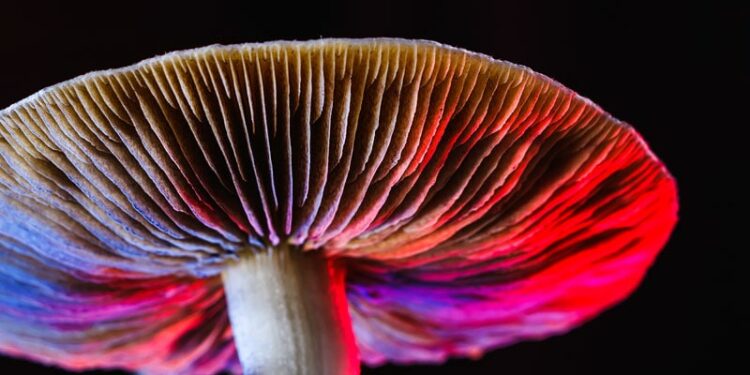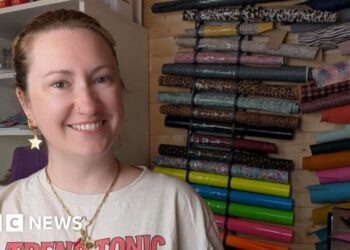The possession, sale, and production of psilocybin for recreational use are illegal in Canada. Why then, do brick-and-mortar psychedelic stores and online sellers appear to be proliferating across urban areas, especially in Ontario and British Columbia (BC)?
Newly published study findings showed that as of May 2024, 57 psilocybin stores were operating in more than a third (35.7%) of major Canadian urban centers. The majority (96.5%) were located in two provinces: Ontario and BC, whose residents collectively make up 52.5% of the nation’s population.
“We had been reading in the news about stores popping up across Canada and anecdotal reports about magic mushroom dispensaries,” lead study author and researcher Jenna Matsukubo told Medscape Medical News.
“Our goal was to provide scientific evidence that these stores do exist, identify where they are located, and evaluate the types of health claims and health warnings they were making on their websites,” she explained.
The study was published online on April 1 in JAMA Network Open.
An Evolving Market
Matsukubo’s team used a cross-sectional design with a two-step approach — systematic web searches and media reports — to identify the physical and online psilocybin dispensaries in 42 major urban Canadian population centers and surrounding areas. The data were collected at 2 unique timepoints: November 2023 and May 2024.
The researchers categorized retailers as chains, independent stores, or websites and analyzed products for sale and health claims and warnings. Health claims were categorized as related to mental health, substance use, nonmedical/wellness, or physical health. Dispensary access was determined using annual population Statistics Canada estimates of individuals aged 15 years or older on July 1, 2021, for each jurisdiction.
Initial findings showed that 68 psilocybin stores were operating in Canada between November 2023 and May 2024, 11 of which (mostly independent or small chain stores) had closed between the two data collection dates.
Products available for purchase ranged from dried mushrooms (sold by 100% of stores), microdosing capsules (97.8%), psilocybin-infused chocolate (91.3%), and gummies (93.4%) to infused teas, cocoa, and other products. Almost two thirds of the stores (65.2%) offered at least one infused product that mimicked popular brand-name snacks (eg, Mushtella, a Nutella-like spread, or chocolates similar to Skor or Reese’s Peanut Butter Cups).
False Claims, Inconsistent Warnings
Matsukubo said that about 86% of stores had websites containing health claims despite limited or no supporting evidence. For example, 81.8% communicated that users might experience declines in social anxiety and generalized anxiety disorder after microdosing, while 77.3% highlighted significant alleviation in depressive symptoms lasting months after treatment and even after a single psilocybin dose. Roughly one third of stores claimed that microdosing resulted in reduced alcohol and nicotine cravings.
Nonmedical claims ranged from increased creativity and open-mindedness (82%) to increasing focus and productivity (77.3%). Claimed physical health benefits included pain (36.4%) and headache (31.8%) relief, as well as improvements in eating disorders, insomnia, obsessive-compulsive disorder, and attention-deficit/hyperactivity disorder (68.2%).
More than half of the websites advised customers to start with a low dose and carried warnings about use in certain populations, potential hallucination or altered perception, and bad trips. Only 9% cited published evidence.
“For most of these substances, there’s no or limited adverse events data because there’s been no studies,” Co-author Daniel Myran, MD, Canada Research Chair in Social Accountability at the University of Ottawa and scientist at the Bruyère Health Research Institute, Institute for Clinical Evaluative Sciences, and The Ottawa Hospital, Ottawa, told Medscape Medical News.

“We were surprised by the broad omission of potentially better-established risks, such as cautioning use by people with a history of bipolar disorder or mania, or psychosis or schizophrenia,” he said.
Vigilance Needed
The opening and closing of psilocybin dispensaries appeared to be a dynamic process.
“This is the only real limitation that came to mind, that many of the stores that they looked at have probably already closed, even in the last year, and others have opened up,” Kyle Greenway, MD, assistant professor of psychiatry at McGill University and attending psychiatrist at the Jewish General Hospital in Montreal, told Medscape Medical News. Greenway was not involved in the study. “Things are moving really quickly.”

There are only three ways to obtain psilocybin legally in Canada: Through a clinical trial, via clinician requests to Health Canada’s Special Access Program, or by exemptions by the Minister of Health (the latter might take as long as 300 days). But the data showed that these restrictions have not prevented consumer access.
“It’s extremely unlikely that any sort of public ad or harm reduction campaign is going to be successful in creating enough awareness around these drugs for them to be liberally sold as is online and in dispensaries,” said Greenway.
“In the absence of regulation and enforcement, there are health claims being made that would need to meet the standards of other products and therapeutics. This suggests that some sort of federal or provincial action should be taken,” Myran added.
The study was independently supported. Matsukubo, Myran, and Greenway reported having no relevant financial relationships.
Liz Scherer is an independent health journalist who frequently writes about psychedelics and cannabis/cannabinoid therapeutics for medicinal purposes.
Source link : https://www.medscape.com/viewarticle/gray-market-psilocybin-sales-proliferating-across-canada-2025a10007sy?src=rss
Author :
Publish date : 2025-04-01 15:00:00
Copyright for syndicated content belongs to the linked Source.














